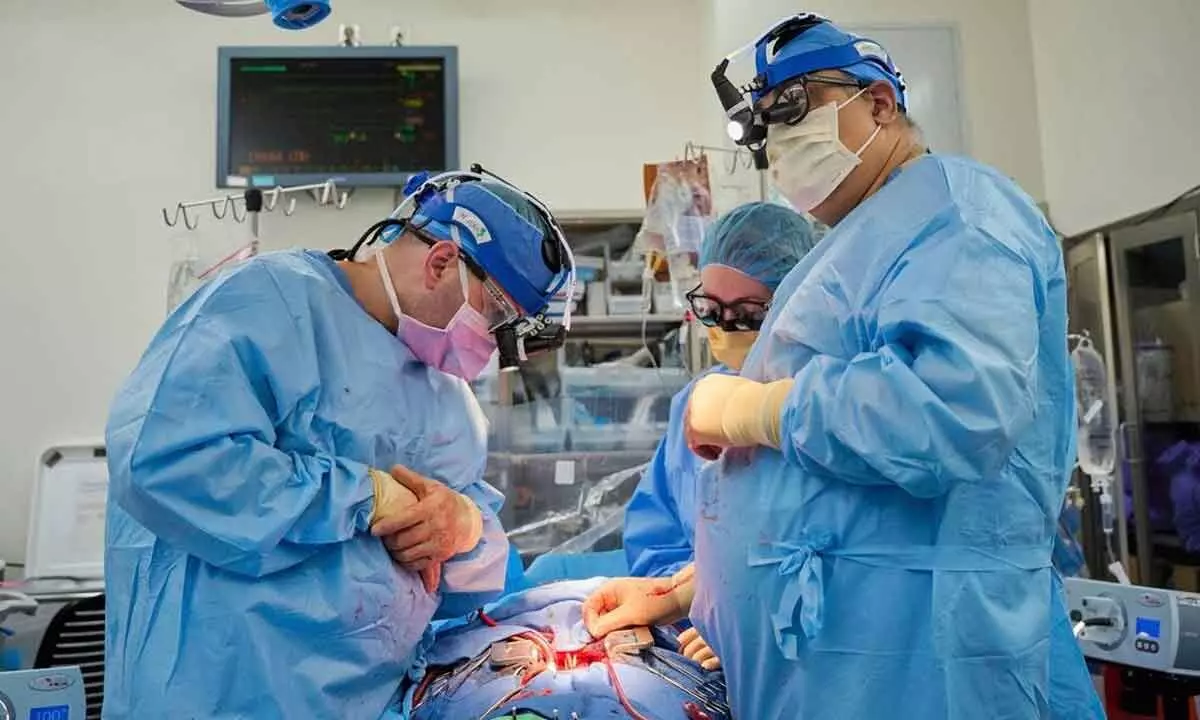Brain-Dead Victims Receive Two Successful Pig Heart Transplants

In this photo provided by NYU Langone Health, Dr. Nader Moazami, right, and cardiothoracic physician assistant Amanda Merrifield, center, and other members of a surgical team prepare for the transplant of a genetically modified pig heart into a recently deceased donor at NYU Langone Health on July 6, 2022, in New York.
- Researchers announced on Tuesday that two brain-dead patients received genetically modified pig hearts from surgeons at New York University
- During the three-day studies in June and July, the hearts had no indications of rejection, the researchers reported at a news conference.
Researchers announced on Tuesday that two brain-dead patients received genetically modified pig hearts from surgeons at New York University (NYU), taking us one step closer to our long-term aim of employing pig parts to solve the lack of human organs for transplant.
During the three-day studies in June and July, the hearts had no indications of rejection, the researchers reported at a news conference.
The tests came after a 57-year-old man with a fatal heart condition who had become history at the University of Maryland two months prior by being the first human to receive a genetically altered pig heart passed away in March. It is still unknown why his new heart eventually failed.
According to the researchers, NYU obtained the hearts from pigs created by Revivicor Inc. and used an improved monitoring methodology to check them for infections. The Maryland man's blood was found to contain porcine cytomegalovirus, which has been linked to pig deaths but was not found in the hearts.
Meanwhile, six genetic alterations were made to the pigs to assist prevent incompatibilities between pigs and people, as well as four to prevent rejection and aberrant organ growth.
Furthermore, in 2021, two brain-dead recipients had pig kidney transplants from researchers at NYU. They currently think that xenotransplantation is both safer in brain-dead recipients than it is in living ones and also more educational because more frequent biopsies may be performed.
However, before beginning the human pig heart trials, he continued, many questions remained after the preliminary data from the 72-hour experiments.
Next Story








